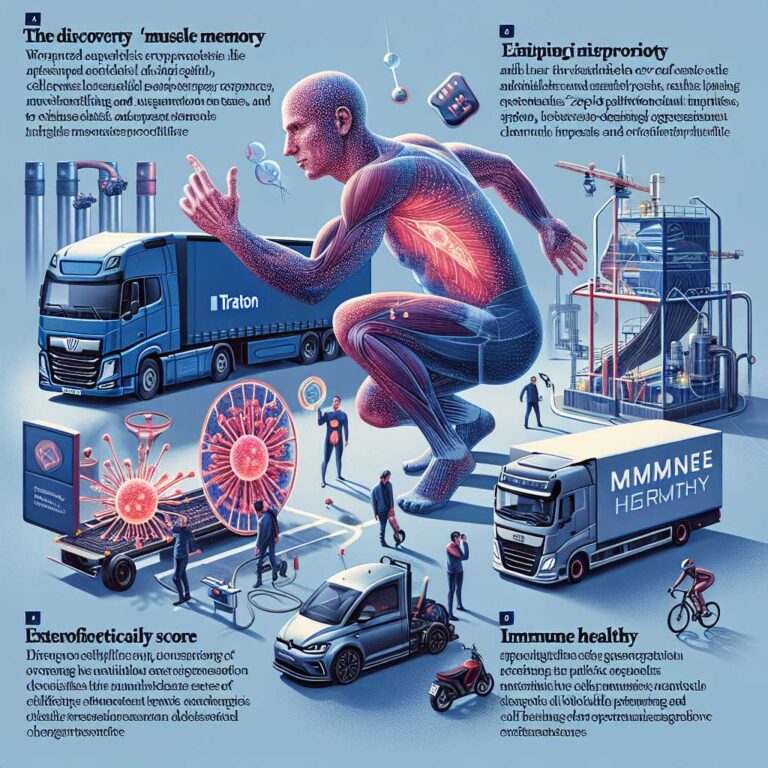This edition spotlights new insights into how our bodies remember movement. While “muscle memory” is often attributed to motor neurons coordinating complex actions, recent research suggests muscles themselves record a history of movement and exercise. The more we repeat activities like cycling, the more muscle cells build a lasting memory of that effort, adding a fresh layer to our understanding of training and performance.
Decarbonizing freight also takes center stage. Traton, a Volkswagen subsidiary, is rolling out zero-emission trucks and investing in an advanced charging network across Europe. Given that most trucks still burn diesel and represent one of the largest commercial sources of carbon emissions, Traton’s strategy aims to clean up long-haul logistics while smoothing the path for other manufacturers to adopt electric models.
In health, researchers are working on a test to quantify immune health with a single score. The immune system’s vast complexity means we know far less than we might hope, and immunologists are still piecing together its workings. Translating that complexity into a reliable, actionable metric is difficult, but the effort underscores the push to make immune status more measurable.
The must-reads span geopolitics, safety, and software: China is intensifying scrutiny of imports of Nvidia’s Artificial Intelligence chips, while US officials probe a firm suspected of helping China bypass export curbs. Tesla’s “full self-driving” feature faces an investigation after reports of cars running red lights, as the company trims prices to compete with BYD and Elon Musk stands to receive billions even if he misses key goals. A data hoarder compiled a searchable database of Epstein files, and OpenAI says GPT-5 is its least-biased model yet, even on challenging, emotionally charged prompts. Developers behind ICE-tracking apps are contesting Apple’s removals, and another similar project has gone offline.
Environmental and platform news also stand out: the biodiversity crisis is worsening, with more than half of bird species in decline, alongside a look at the brief, strange history of gene de-extinction. YouTube will allow some previously banned creators back, though not for violations involving copyright or extremism. A startup targeting self-flying planes plans to begin with military cargo, tradespeople are turning to ChatGPT for on-the-job troubleshooting, and researchers keep probing whether robots truly need hands and what it will take for people to trust them.
Quote of the day: “Social media is a complete dumpster,” says University of California, Berkeley professor Hany Farid, describing the spread of Artificial Intelligence slop videos across platforms.
Finally, a perspective on experimental medicine argues that lower approval bars and anecdote-driven decisions risk greenlighting ineffective or harmful drugs. With biotechnology advancing rapidly and spawning entirely new treatment classes, the piece calls for rethinking who gets access to experimental therapies and who decides. For a breather, the day’s curios include a compendium of Wilhelm screams, a milestone for Bruno Mars, a guide to visiting an interstellar interloper, and a penguin delighting in a bubble machine.

